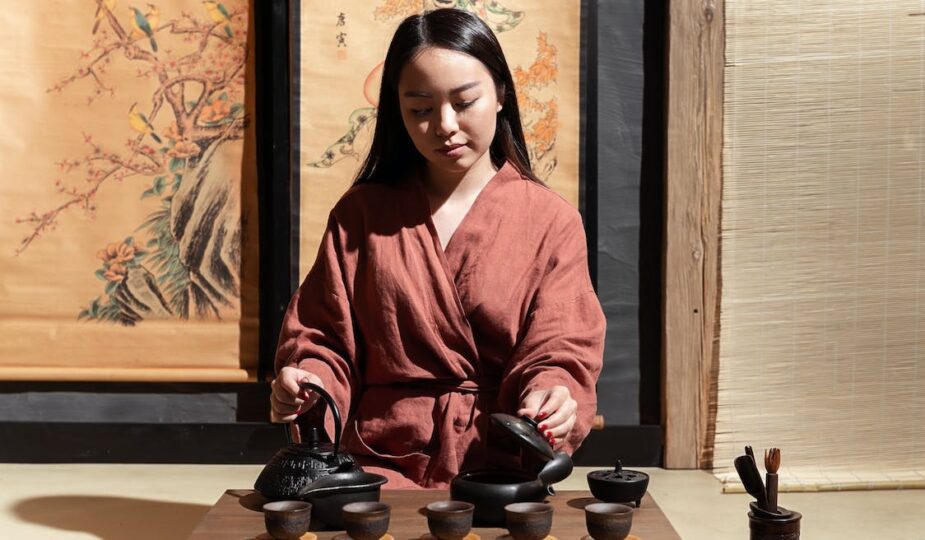
The Cultural Significance of Coffee: Exploring Traditions
Coffee holds cultural significance in many societies around the world. From Ethiopia to Italy, coffee is not just a beverage but a symbol of tradition, community, and social gatherings. In this blog post, we will explore the rich cultural traditions and rituals associated with coffee, and delve into the global practices and brewing methods that have shaped coffee culture. We will take you on a journey from the intricate Ethiopian coffee ceremonies to the vibrant espresso culture in Italy, discovering how coffee has become an integral part of different societies and their way of life. So grab your cup of coffee and join us as we immerse ourselves in the fascinating world of coffee and culture.
Table of Contents
- Common Facts About Coffee Cultural Traditions and Rituals
- The Cultural Significance of Coffee: Exploring Traditions and Ceremonies
- Frequently Asked Questions
- What is the significance of coffee in different cultures?
- Can you give examples of traditional coffee ceremonies?
- How does the Italian espresso culture differ from other coffee traditions?
- Are there any similarities between different coffee traditions?
- How does coffee play a role in social gatherings?
- Are there modern adaptations of traditional coffee ceremonies?
- Where can I experience these coffee traditions?
- What makes coffee a cultural symbol in different parts of the world?
- How does the Ethiopian coffee ceremony work?
- What’s unique about Turkish coffee and its preparation?
- How does coffee play a role in Middle Eastern cultures?
- What’s the connection between Italian culture and espresso?
- Are there any lesser-known coffee traditions explored in the blog?
- How has modernization impacted traditional coffee ceremonies?
- Where can I learn more about the global coffee culture?
- A Guide to Exploring Coffee Cultural Traditions
- Wrap Up
Common Facts About Coffee Cultural Traditions and Rituals
Coffee cultural traditions and rituals play a significant role in societies worldwide. Coffee has been cherished for centuries, not just as a beverage but also as a symbol of hospitality, connection, and social gatherings. These traditions and ceremonies vary greatly across different cultures, with each one bringing its unique flavor and meaning to the coffee experience.
Did you know that according to legend, coffee was discovered by an Ethiopian goat herder named Kaldi? The story goes that Kaldi noticed his goats became energetic after eating the cherries of a certain tree. Curious, he tried the cherries himself and experienced a burst of energy. This led to the discovery of coffee and eventually the development of the coffee industry!
The Cultural Significance of Coffee: Exploring Traditions and Ceremonies
Coffee has been an integral part of cultures worldwide for centuries. Beyond being a simple beverage, it holds deep cultural significance in many societies, symbolizing hospitality, connection, and social bonding. In this blog post, we will embark on a journey through different coffee traditions and ceremonies across the globe, exploring the rich history and diverse practices associated with this beloved beverage.
Coffee Cultural Traditions
Coffee cultural traditions vary greatly from country to country, reflecting the unique customs and values of each society. In Ethiopia, the birthplace of coffee, elaborate coffee ceremonies are an integral part of community life. Ethiopian coffee ceremonies involve roasting coffee beans in front of guests, grinding them by hand, and serving the freshly brewed coffee in small, handle-less cups called ceramic. This ritual is not just about the coffee itself, but also about fostering social connections and showing respect to guests.
In the Middle East, particularly in countries like Turkey and Saudi Arabia, coffee plays a significant role in hospitality. Offering coffee to guests is seen as a gesture of warmth and generosity, and the way the coffee is prepared and poured is considered an art form. Turkish coffee, known for its strong flavor and thick consistency, is traditionally brewed in a special pot called a cezve and served in small cups alongside sweet treats.
Coffee Rituals
Alongside cultural traditions, coffee rituals also abound in different societies. These rituals vary in their complexity and the occasions they are associated with. In Italy, for example, coffee rituals are deeply rooted in daily life. Italians enjoy a morning ritual known as la colazione (breakfast), which typically involves a cup of rich, velvety espresso paired with a pastry or biscotti. Coffee in Italy is savored slowly, standing at the bar or seated at a cafe, providing a moment of relaxation and socializing.
In Japan, the process of brewing and serving coffee has taken on a unique cultural significance. The meticulous attention to detail involved in pouring coffee exemplifies the Japanese concept of omotenashi (hospitality). Coffee shops in Japan, known as kissaten, prioritize quality and craftsmanship, using traditional brewing methods to create a perfect cup of coffee for each customer.
Global Coffee Practices
While cultural traditions and rituals may differ, certain coffee practices have become global phenomena. Take, for instance, the rise of specialty coffee culture. In recent years, the trend of seeking high-quality, artisanal coffee has spread across continents, with coffee enthusiasts exploring brewing techniques, experimenting with different beans, and appreciating the intricate flavors and aromas found in specialty coffees.
Moreover, social gatherings centered around coffee have become a global norm, providing opportunities for connection and conversation. Whether it’s catching up with friends at a local cafe, participating in a coffee cupping session, or attending coffee festivals, these shared experiences demonstrate the universal role coffee plays in fostering relationships and creating a sense of community.
From traditional brewing methods to the fusion of coffee with cultural practices, the global coffee landscape continues to evolve. As we sip our favorite brews, let us appreciate the diverse cultural significance of coffee and the role it plays in shaping our social interactions and enriching our lives.
Frequently Asked Questions
What is the significance of coffee in different cultures?
Coffee holds deep cultural significance in various parts of the world. It often symbolizes hospitality, community, and tradition. Different cultures have unique rituals and ceremonies surrounding coffee, which play a central role in their social interactions.
Can you give examples of traditional coffee ceremonies?
Absolutely! The blog explores notable coffee ceremonies such as the Ethiopian coffee ceremony, where coffee is prepared and served in a ceremonial fashion. Another example is the Middle Eastern coffee preparation using an ibrik, a long-standing tradition that emphasizes precise brewing techniques.
How does the Italian espresso culture differ from other coffee traditions?
The Italian espresso culture is known for its emphasis on quick, concentrated shots of coffee. Unlike elaborate ceremonies, Italian coffee culture revolves around efficiency and quality. Espresso serves as a quick pick-me-up and a momentary pause in the day.
Are there any similarities between different coffee traditions?
Yes, despite their unique elements, many coffee traditions share common themes. For instance, the act of sharing coffee with friends and family is a universal value across cultures. Additionally, the idea of using coffee as a way to welcome guests and foster connections is a common thread.
Coffee often acts as a bridge that brings people together. Whether it’s the Moroccan mint tea ceremony or the Swedish fika, these traditions encourage conversations and bonding. Coffee rituals provide an opportunity for people to connect on a deeper level.
Are there modern adaptations of traditional coffee ceremonies?
Absolutely! While traditional coffee ceremonies continue to be practiced, some cultures have adapted them to modern settings. For instance, the Japanese pour-over method incorporates precision and artistry, transforming coffee brewing into a contemporary ritual.
Where can I experience these coffee traditions?
If you’re curious to experience coffee traditions from around the world, you might find cultural festivals, specialty cafes, or local communities that celebrate these practices. Exploring these opportunities can provide valuable insights into the diverse world of coffee culture.
What makes coffee a cultural symbol in different parts of the world?
Coffee has been embraced as a cultural symbol due to its role in bringing people together. It often signifies hospitality, friendship, and tradition. Across various cultures, coffee ceremonies and rituals reflect the values and identity of a community.
How does the Ethiopian coffee ceremony work?
The Ethiopian coffee ceremony is a traditional practice where coffee beans are roasted, ground, and brewed in front of guests. It’s a symbol of hospitality and friendship. The process involves multiple rounds of serving coffee, emphasizing connection and conversation.
What’s unique about Turkish coffee and its preparation?
Turkish coffee is known for its strong flavor and unique brewing method. The coffee is ground to a fine powder and boiled in a special pot called a cezve. The preparation includes foaming the coffee multiple times during heating, resulting in a distinctive and flavorful brew.
How does coffee play a role in Middle Eastern cultures?
In Middle Eastern cultures, coffee is often served as a gesture of welcome and respect. The preparation of coffee in an ibrik, also known as a cezve, is a revered practice. The act of offering and sharing coffee is deeply rooted in social interactions and customs.
What’s the connection between Italian culture and espresso?
Italian espresso culture is characterized by its emphasis on quality and efficiency. Espresso is a quick shot of strong coffee, enjoyed throughout the day. It’s often consumed at cafes, where people take a moment to savor the rich flavor and engage in brief social interactions.
Are there any lesser-known coffee traditions explored in the blog?
Yes, the blog delves into lesser-known coffee traditions like the Moroccan mint tea ceremony, where tea and coffee hold cultural significance. Additionally, the Scandinavian concept of “fika” involves enjoying coffee and pastries as a break to connect with others.
How has modernization impacted traditional coffee ceremonies?
Modernization has led to the adaptation of traditional coffee ceremonies to contemporary settings. For example, the Japanese pour-over method combines precision and aesthetics in coffee preparation. These adaptations highlight the enduring cultural importance of coffee while embracing new techniques.
Where can I learn more about the global coffee culture?
Aside from this blog post, there are various resources available for learning about coffee traditions. Consider exploring documentaries, books, and online communities dedicated to coffee culture. Engaging with local coffee shops and attending cultural events can also provide immersive experiences.
A Guide to Exploring Coffee Cultural Traditions
Research coffee cultures
Start by delving into the diverse coffee cultural traditions around the world. Read books, browse online resources, and explore documentaries to gain an understanding of how different societies incorporate coffee into their daily lives.
Suggested resources: National Geographic: Ethiopian Coffee Ceremony, Coffee Culture by Catherine M. Tucker
Attend a local coffee ceremony or event
Embark on a coffee-centric adventure in your own community! Look out for local coffee shops or cultural centers hosting coffee ceremonies or events. Participate in or observe these gatherings to witness firsthand the rituals and practices that define the coffee culture in your area.
Suggested ideas: Check out specialized coffee shops, international festivals, or community events related to coffee and culture.
Experiment with traditional brewing methods
Expand your coffee brewing horizons by trying out traditional methods from different cultures. Experiment with brewing techniques such as Turkish coffee, Italian espresso, or Japanese pour-over. Each method carries its own unique flavors and rituals.
Suggested methods: Turkish coffee pot (cezve/ibrik), espresso machine, pour-over equipment.
Incorporate coffee rituals into your daily routine
Take inspiration from global coffee practices and incorporate meaningful rituals into your own coffee drinking routine. It could be as simple as setting aside a few moments each day to savor your coffee, or creating a dedicated space in your home for coffee brewing and contemplation.
Suggested ideas: Use a coffee journal to record your thoughts and experiences, create a designated coffee corner in your kitchen, or explore the art of coffee cupping.
Coffee is often enjoyed as a social beverage, bringing people together. Extend the cultural significance of coffee by sharing your knowledge and experiences with friends, family, or fellow coffee enthusiasts. Host your own coffee gathering or participate in coffee-related community events.
Suggested ideas: Organize a coffee tasting party, start a coffee club, or volunteer at a local coffee-focused charity event.
Wrap Up
In conclusion, coffee is not just a beverage, but a powerful symbol of culture and tradition. From the intricate Ethiopian coffee ceremonies to the vibrant Italian espresso culture, coffee rituals and practices vary greatly around the world. Traditional brewing methods and unique social gatherings involving coffee showcase the deep connection between coffee and culture.
Exploring global coffee practices gives us a glimpse into the diverse ways people enjoy and appreciate this beloved beverage. Whether it is the strong and bold Vietnamese coffee, the slow and elegant siphon coffee, or the invigorating Turkish coffee, each brewing method adds a unique flavor and experience to the coffee.
Coffee cultural traditions bring people together, fostering social connections and strengthening communities. The act of brewing and sharing coffee has become a ritual that transcends borders and languages.
We hope this journey through coffee traditions and ceremonies has expanded your understanding of the cultural significance of coffee. We encourage you to explore and learn more about the coffee practices that intrigue you. If you have any additional insights or experiences to share, feel free to leave a comment below. Let’s continue the conversation about coffee and culture!
Find more articles related to coffee brewing methods and recipes:
- How to Make Vietnamese Coffee: The Strong, Bold Coffee
- How to Hario V60: The Ultimate Guide to Making Perfect Coffee
- How to Siphon Coffee: The Slow and Elegant Way to Brew a Perfect Cup
- How to Aeropress: The Ultimate Guide to Making Amazing Coffee at Home
- How to Turkish Coffee: An Invigorating Coffee Experience
Thank you for joining us on this cultural exploration of coffee traditions and ceremonies. Happy brewing!









